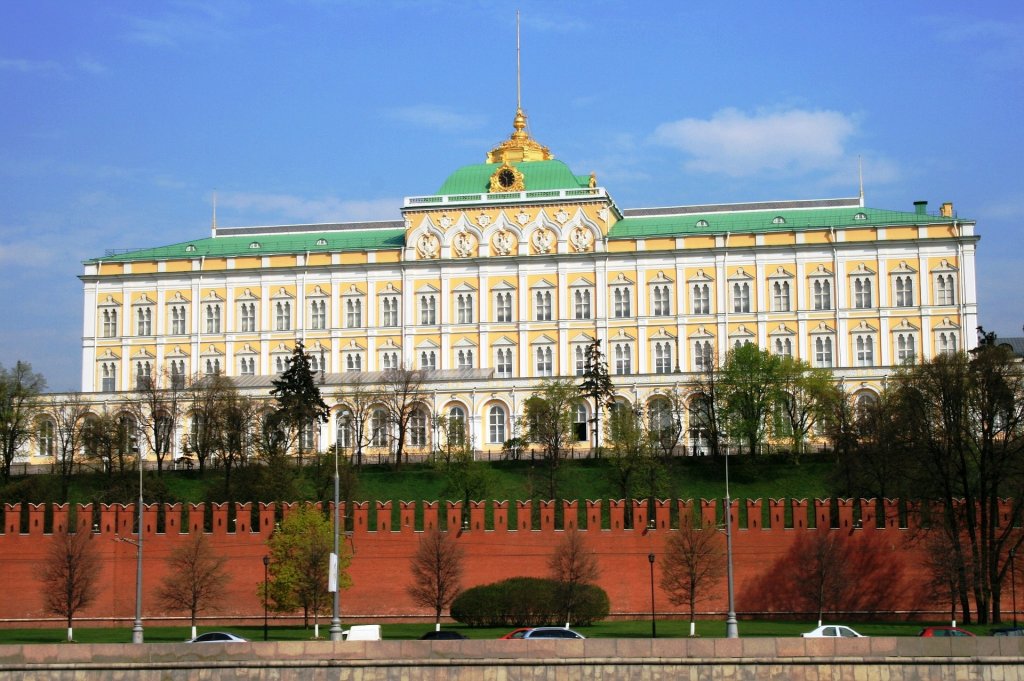
Russia’s invasion of Ukraine has called into question the major paradigms of International Relations (IR) – Realism in particular – and reinvigorated debates about great power politics. An important strand of Realist thought has set the tone, highlighting the culpability of the West in interfering with Russia’s traditional sphere of influence and goading the Russians into a desperate situation. These sentiments are echoed and embraced across the political spectrum by individuals who are quick to draw attention to similarities between Russia’s current invasion and dozens of interventions and invasions the US and its allies have carried out since the unipolar moment. The insurmountable gaps both among global public opinion and between IR theories on what to make of this invasion necessitate a theoretical recontextualization of Russian behavior.
I argue that IR theories frame discussions of international order through moralistic concepts, but also underscore that their limited utility necessitates a nuanced understanding of state behavior predicated on a state’s disposition towards international order. Russian aggression against Ukraine in the current case needs to be contextualized through Russia’s long-standing reluctance to become a stakeholder in the present international order.
IR Theory as Apologia
Great powers assert moral superiority, often labeling intransigent states with epithets like a revisionist, rogue or authoritarian. Writing on the eve of the Second World War, E. H. Carr cautioned against the moral aspirations of the great powers that underpin international orders. Despite its central role in the present international order as both great power and a permanent member of the UN Security Council, the invocation of anti-imperial resistance forms the basis by which Russia often justifies its foreign and domestic policies. After all, the United States maintains an empire and it can interfere in the affairs of, or outright invade, other states with impunity, which is just as harmful to international order. IR’s self-professedly most amoral theory – Realism – frames international order as the remainder of an inadvertent balance of power, professing no qualms about advocating for a nuclear-armed great power like Russia to have an inherent right to maintain an inviolable sphere of interest, never mind the agency of lesser power states.
Liberal IR theory, meanwhile, is also culpable. Liberal IR theory conflates harmony with international order with a state’s regime type, propensity for economic interdependence, membership within international institutions, and normative performance. These liberal values represent the trappings of American hegemony, however, and as a litany of analysts will point out, the underlying cause of the war is NATO’s (and the EU’s) rapid expansion. In other words, Russia fits well into the mold of a belligerent and intransigent actor per the liberal IR tradition, yet the track record of liberal great power states, including their own humanitarian failings, bestows a modicum of normalcy to Russian conduct. Russia’s foreign policy aspirations could be based on a desire to enhance its prestige and status at a time of decline and external encroachment, but it is easy to identify the mismatch between its status aspirations and the policy instruments used to achieve them. After all, Ukraine is not a peer-competitor of Russia, and the act of invading Ukraine, again with the flimsy victimhood-laden justifications, murdering civilians in troves, and having one’s military humiliated, does nothing to enhance Russian power or prestige.
IR theories have little to contribute, it seems, in terms of contextualizing one of the most significant conflicts unfolding before us. IR theories often adopt labels like revisionist or status quo states, which have very limited analytical utility and only seem to appear in both IR theoretical and public discourses as moralistic framings. Without the understanding that states interact with international order in a variety of ways at different junctures, it becomes difficult to prevail against the “whataboutism” that seems to poison conversations about international relations.
The Sources of Russian Conduct
Russia has always been a distinct and self-professedly exceptional actor in international relations. It has often been treated as an outsider to international society (again, largely due to its own exceptionalism), but few would dispute that Russia is a major military and political actor that has been a cornerstone of the post-Cold War international order. More than any other factor, this duality stems from the inability of Russia to buy into the present global arrangements in such a way that it perceives a long-term benefit from playing by the rules. This is to say that Russia is not a revisionist state per se given that it cooperates with the West on a variety of high-politics issues. It does, however, engage in order-challenging behavior and has been more than willing to upend the rules of international order whenever its leadership has thought it advantageous to do so.
The invasion of Ukraine occurred at the intersection of Russian exceptionalist thinking and the Russian leadership’s desire to avoid future losses. It is difficult for the leaders of a state like Russia to normatively invest in what they perceive to be an unwelcoming international order. Since the 1990s following the collapse of the Soviet Union, Russia has been working on shepherding together its former empire and staving off what it perceives as Western encroachment in its backyard. At the same time, however, Russia’s ruling classes seem content to reap the fruits of Russia’s deep commercial ties with the rest of the world and heavily invest in Western countries in myriad sectors ranging from energy trade to football, not to mention illicit transactions. Clearly, the Russian leadership is invested in maintaining at least a modicum of transactionalism, if not more, with the West. Endorsing a full-scale invasion of Ukraine and being subjected to increasingly punitive sanctions is not to their advantage.
A far more important factor is Putin, whose long-standing presence at the helm obscures analytical distinctions between the qualities of his leadership and the structural features of the Russian regime. Putin’s own brand of leadership has been controversial, to say the least. He has been alternatingly labeled a great leader because of his past exploits and a madman because of Russia’s invasion of Ukraine, which seems to have been engineered and is being directed primarily by Putin alone. The question here, of course, is the gap between Putin’s stated concerns over Western encroachment, Russia’s claims over Ukraine, and actual Russian policy. Putin could have achieved his goals with a circumscribed invasion of the disputed regions. Instead, Russia’s current destructive path makes sense only in the context of a leader contemptuous of Ukrainian statehood and one who cannot make peace with an international order unwilling to accommodate Russian exceptionalism.
Putin’s rationale is likely also affected by Russia’s grim prospects. Despite its reputedly sanction-proof economy, the Russian economy is likely to contract because of sanctions and the costs of the war itself. Despite the overall successes of the Russian economy under Putin, hydrocarbons constitute most of Russia’s exports, which portends economic volatility and vulnerability, especially if Russia’s major trading partners like Germany decided to terminate the importation of Russian gas. Russia has also been facing a demographic decline since the end of the Cold War, which has only become more pronounced in recent years, with projections casting doubt about the possibility of Russia having the necessary manpower to be able to conduct war at the scale of its invasion of Ukraine in the future.
The Russian leadership, or Putin at the very least, must be viewing Russia’s prospects with concern. They were willing to invade a large neighboring state to rectify this problem. The said state exists on geopolitically significant real estate and, like many of its neighbors, attempted to court the West to allay the eventuality of a Russian invasion. Disdainful of Ukrainian independence, and lacking any compunctions about using force, Putin’s decision appears to be a calculated risk taken to resuscitate Russian power by a leadership unwilling to accept their country’s decline.
Calling a Spade, a Spade
The fact of the matter is that Russia’s wholesale invasion of a neighboring country is consistent with Russia’s past modus operandi. It is, moreover, a serious blow to international order as it undermines the sovereignty of Ukraine, the security arrangements in the region, and the fundamental goals of the international order to promote peaceful coexistence. Ultimately, Russia’s invasion of Ukraine rests on flimsy, jingoistic reasoning. Russia has long expressed grievances over Western influence and its waning influence among neighbors. Its decision to escalate in Ukraine ultimately lies in a fundamental inability to link Russia’s long-term interests with that of the international community, and the urgency with which the Russian leadership seeks to address Russia’s projected decline. NATO and EU expansion no doubt aggravated these concerns, but the Russian response essentially vindicates its former imperial subjects’ zealous desire to join the West.
Conventional IR theoretical “wisdom” should not distract us from decades of Russian exceptionalism and its disposition contra international order. Presently, the international community has no other option than to act in solidarity with Ukraine until the end of the hostilities, after which the international community needs to work hard to make Russia a genuine stakeholder in the system.

Dr. Onur Erpul
Onur Erpul earned his BA and MA in International Relations from Bilkent University, and Ph.D. from Florida International University. He is a postdoctoral researcher at the Center for Foreign Policy and Peace Research. His research interests include IR Theory, foreign policy analysis, security studies, state formation Erpul’s publications have appeared in International Theory, Foreign Policy Analysis, and the Journal of Southeast European and Black Sea Studies.
To cite this work : Onur Erpul “ IR Theory and Russian Apologia ”, Panorama, Online , 10 May 2022, https://www.uikpanorama.com/blog/2022/05/10/rs-theory2/
Copyright@UIKPanorama. All on-line and print rights reserved. Opinions expressed in works published by the Panorama belongs to the authors alone unless otherwise stated, and do not imply endorsement by the IRCT, Global Academy, or the Editors/Editorial Board of Panorama.

